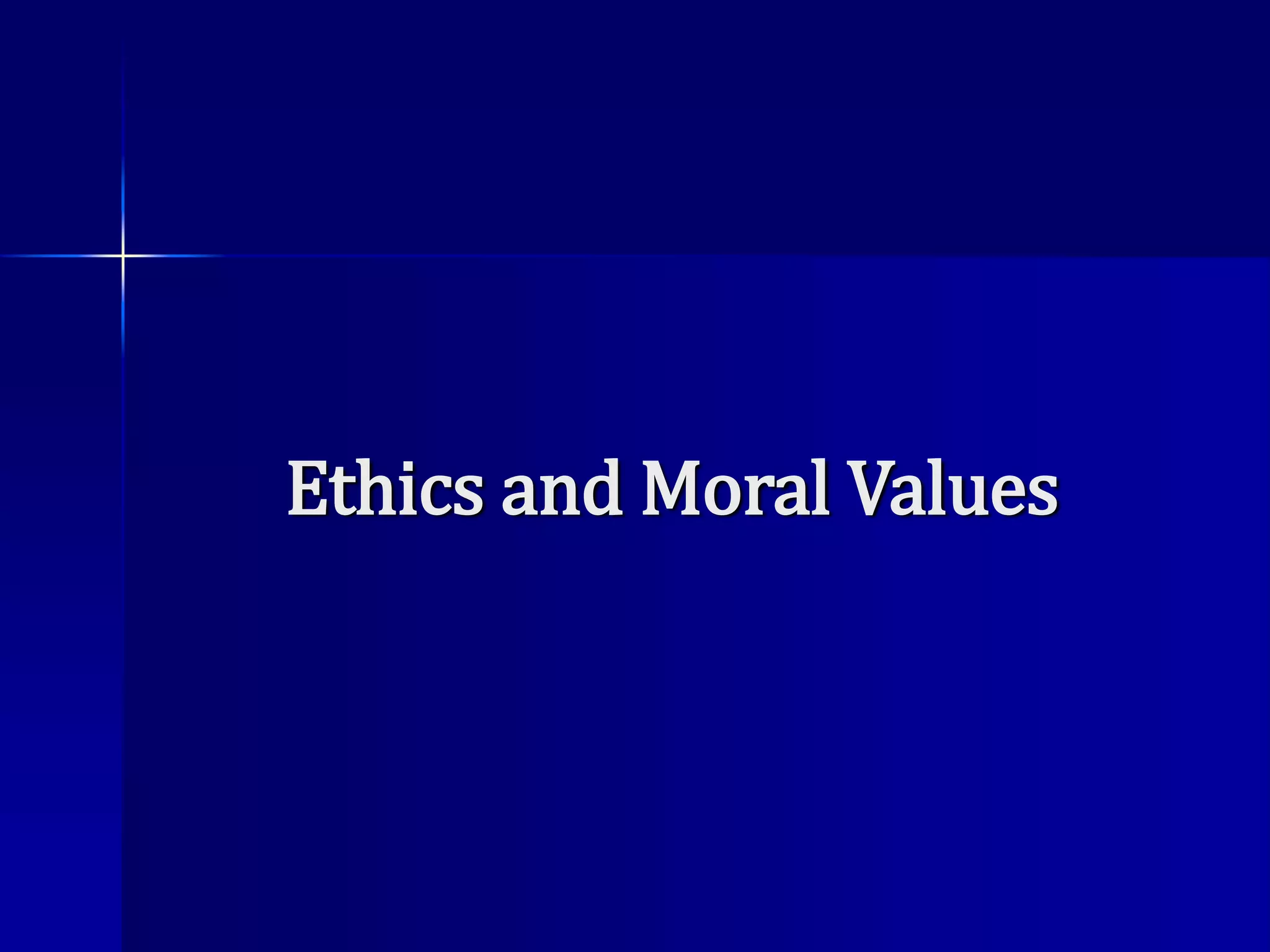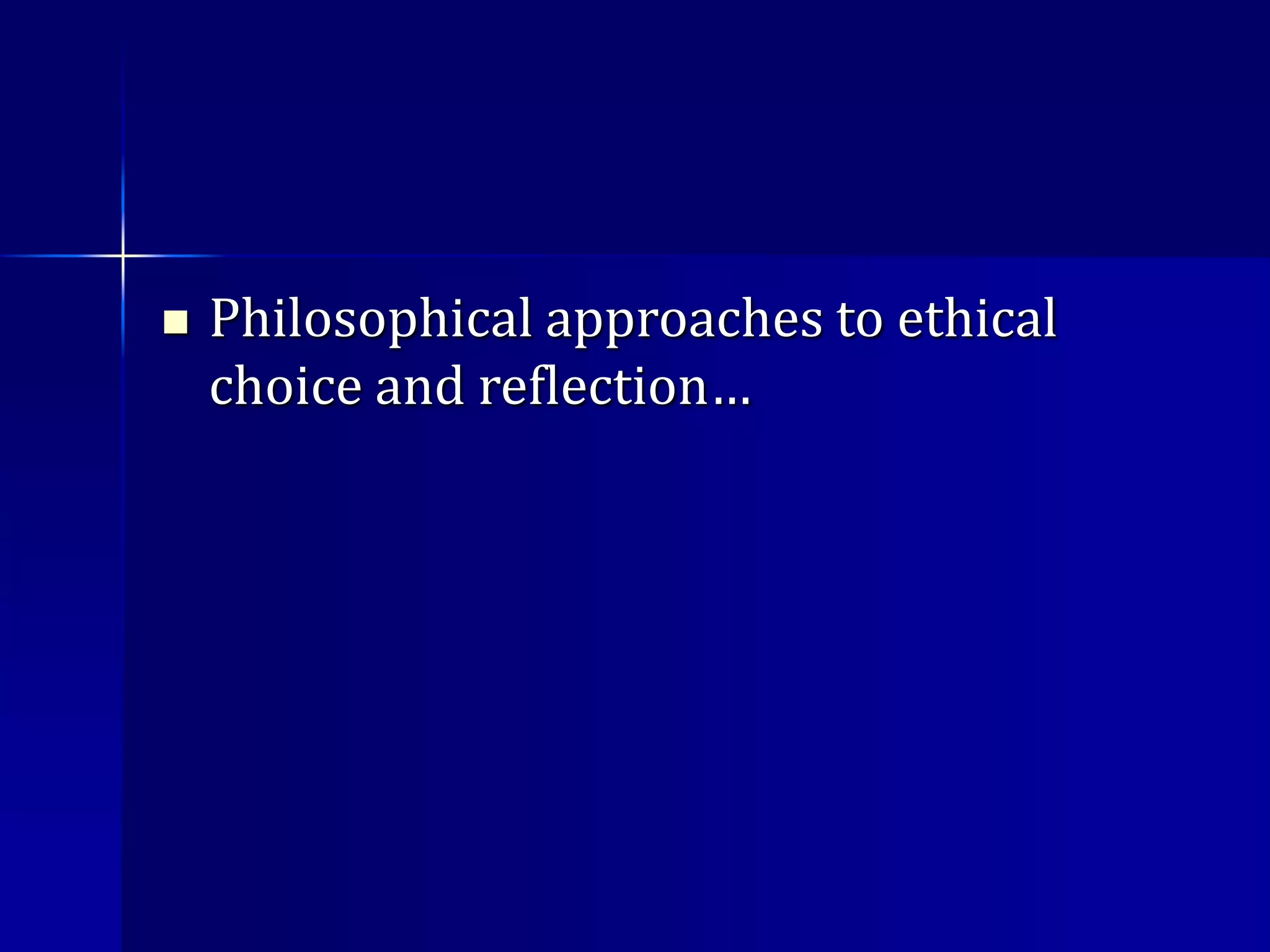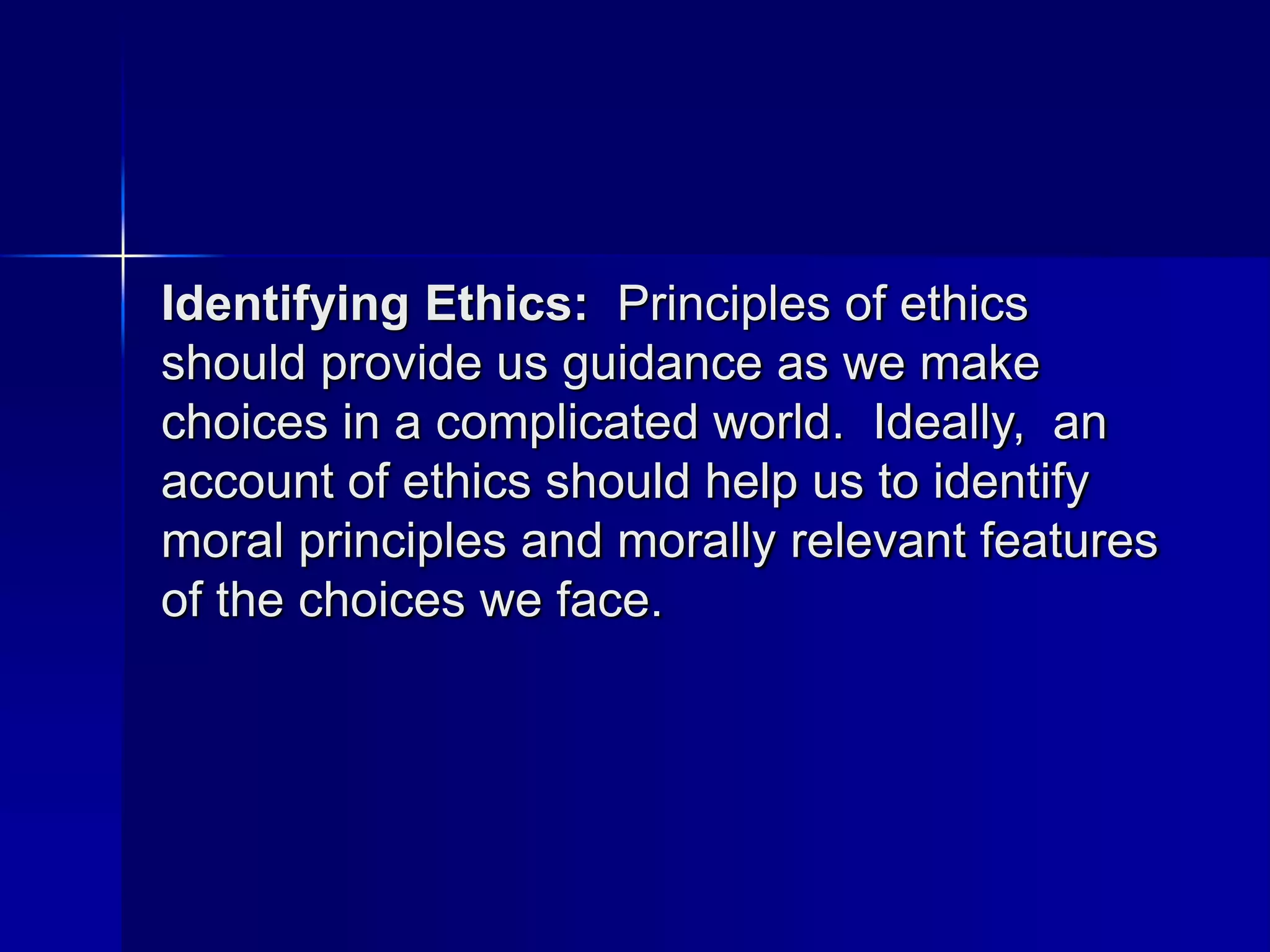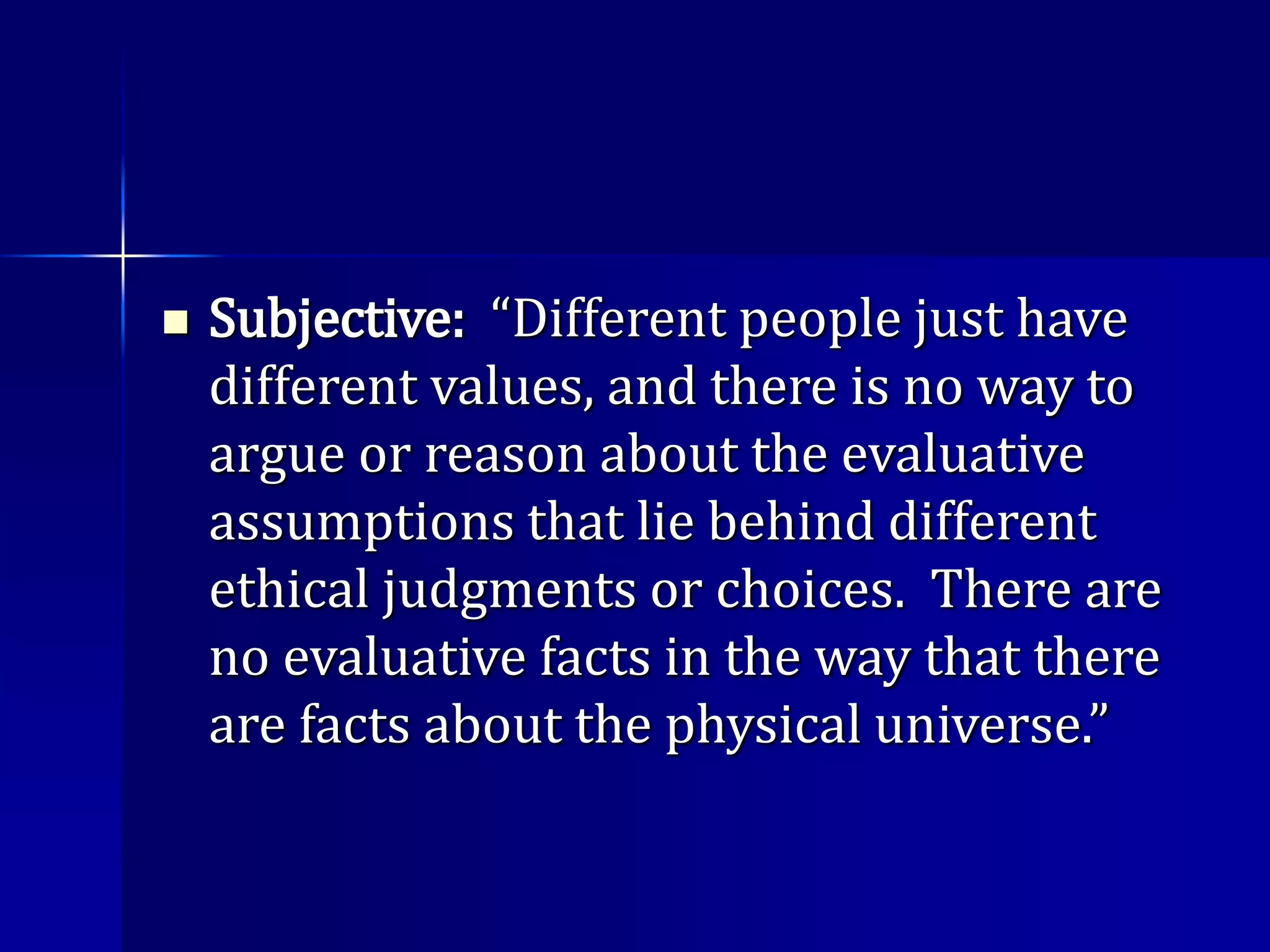1) The document discusses several philosophical approaches to ethics including identifying moral principles, evaluating alternative values, and understanding the relationship between ethics and religious beliefs.
2) It explores whether ethical judgments are relative, subjective, and incomparable or if common values allow for ethical discussion and argument.
3) The document provides examples of ethical arguments and examines the idea of basic versus derivative obligations and different philosophers' attempts to identify a set of fundamental basic obligations.



































